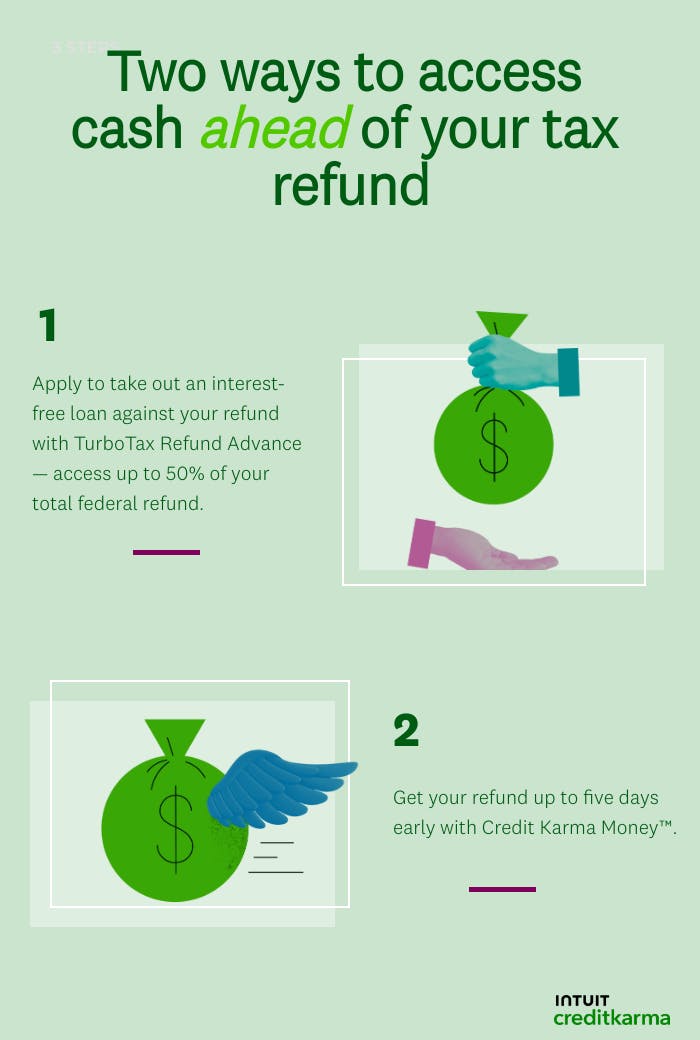We think its important for you to understand how we make money. Its pretty simple, actually. The offers for financial products you see on our platform come from companies who pay us. The money we make enables us to produce our other fantastic tools and instructional materials as well as to provide you with free credit scores and reports.
Compensation may factor into how and where products appear on our platform (and in what order). However, since the majority of our revenue comes from the offers you accept, we make an effort to present you with offers we believe are a good fit for you. Thats why we provide features like your Approval Odds and savings estimates.
Naturally, not all financial products are represented by the offers on our platform, but our aim is to present you with as many excellent options as possible.
Both Credit Karma and TurboTax, which are subsidiaries of Intuit, provide a range of tools and features to assist you in managing your taxes and overall financial situation.
Both companies can also help you access cash quickly during tax season. We’ll review your options and how they work.
Credit Karma has become a household name for many individuals seeking free credit scores and financial management tools. But who actually owns this popular platform? In this comprehensive guide, we’ll delve into the history and ownership of Credit Karma, providing you with all the essential information you need to know.
A Brief History of Credit Karma
Founded in 2007 by Kenneth Lin, Ryan Graciano, and Nichole Mustard, Credit Karma started as a free credit monitoring service The company quickly gained traction, attracting millions of users with its user-friendly interface and comprehensive financial tools.
Throughout the years, Credit Karma expanded its offerings, introducing features like credit score simulations, personalized recommendations for financial products, and even tax preparation services. This expansion solidified Credit Karma’s position as a leading personal finance platform.
The Acquisition by Intuit
In December 2020, Intuit, the renowned software company behind popular products like TurboTax and QuickBooks, acquired Credit Karma for a staggering $7.1 billion. This acquisition marked a significant milestone in the financial technology landscape, bringing together two major players in the personal finance industry.
The Department of Justice’s antitrust concerns initially posed a barrier to the acquisition. To allay these worries, Intuit decided to sell Credit Karma Tax, a free tax preparation service that was a direct rival of TurboTax.
After the acquisition was successfully completed, Credit Karma carried on operating under the Intuit brand, utilizing the resources and know-how of the business to expand its reach and offerings.
Current Ownership Structure
As of today, Credit Karma is wholly owned by Intuit. Through the acquisition, Credit Karma is now able to take advantage of Intuit’s extensive background in the financial software sector, which will help the company keep developing and growing its offerings.
The Future of Credit Karma
Under Intuit’s ownership, Credit Karma is poised for continued growth and development. The company is expected to integrate its services more closely with Intuit’s existing offerings, creating a more comprehensive and seamless financial experience for users.
Furthermore, Credit Karma is probably going to take advantage of Intuit’s worldwide presence in order to penetrate new markets and reach even more people who want to take charge of their financial health.
Credit Karma’s rise from a small business to a significant force in the personal finance sector is evidence of its dedication to offering easily accessible and understandable financial products. With support from Intuit, Credit Karma is well-positioned to maintain its current growth trajectory and enable people to reach their financial objectives and make wise financial decisions.
Special pricing and offers
Special offers and pricing for tax filing are available to certain Credit Karma members who use the Credit Karma app to file their taxes using TurboTax. These offers include features like Audit Defense, which defends filers in the event of an IRS or state audit.
Early access to your refund

BE CAREFUL USING CREDIT KARMA – WHAT YOU SHOULD KNOW
FAQ
Who is Credit Karma owned by?
Can Credit Karma be trusted?
What bank controls Credit Karma?
Is Credit Karma a sham?
How does Credit Karma make money?
All of Credit Karma’s services are free to consumers. Revenue from targeted advertisements for financial products offsets the costs of its free products and services. Credit Karma earns revenue from lenders, who pay the company when Credit Karma successfully recommends customers to the lenders.
Who owns Credit Karma?
Credit Karma was started in 2007 by Kenneth Lin, the current chief executive, and two co-founders, after Mr. Lin had trouble acquiring his own credit score. Until about a decade ago, consumers generally had to buy a credit score directly from the three major credit bureaus.
Does Credit Karma have a new logo?
One change is a new logo, which includes the Intuit name above Credit Karma on areas like our website, mobile application, emails, and Help Center. Is Credit Karma still free?
Is Credit Karma worth billions of dollars?
The deal, which could be announced as soon as Monday, points to the value of the financial data of ordinary Americans. Credit Karma grew to be worth billions of dollars by selling credit card offers to its customers after building their credit profiles.
